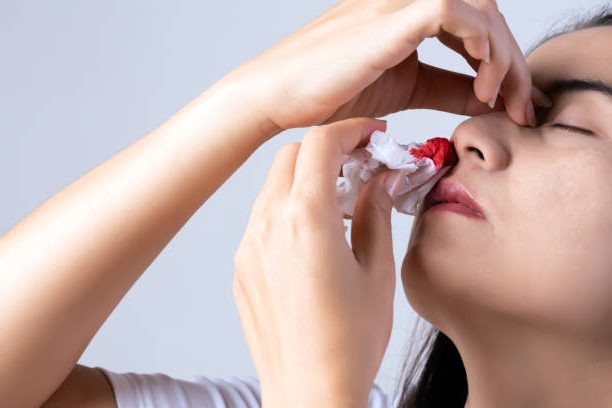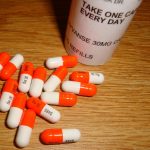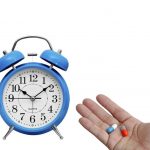Does Vyvanse Cause Nose Bleeds?

Vyvanse (lisdexamfetamine dimesylate) is a prescription medication that is used to treat attention deficit hyperactivity disorder (ADHD) and binge eating disorder. It is a central nervous system stimulant that works by increasing the levels of certain neurotransmitters in the brain, including dopamine and norepinephrine.
Vyvanse was developed by the pharmaceutical company Shire (now part of Takeda Pharmaceutical Company Limited) and was first approved by the U.S. Food and Drug Administration (FDA) in 2007 for the treatment of ADHD in children aged 6 to 12 years old. The FDA later approved Vyvanse for the treatment of ADHD in adults in 2008.
In 2015, the FDA approved Vyvanse for the treatment of moderate to severe binge eating disorders in adults. This was the first medication to be approved by the FDA specifically for the treatment of binge eating disorder.
Vyvanse is classified as a Schedule II controlled substance, which means it has a high potential for abuse and dependence. It is available in capsule form and is typically taken once daily in the morning. The dose of Vyvanse should be carefully monitored and adjusted by a healthcare professional to ensure that it is effective and safe.
How Is Vyvanse Taken
Vyvanse (lisdexamfetamine dimesylate) is typically taken once daily in the morning, with or without food. The capsule should be swallowed whole, with water or another liquid. The dose of Vyvanse will depend on the individual’s age, weight, and the condition being treated.
For ADHD, the recommended starting dose for children aged 6 to 12 years old is 30 mg once daily. The dose may be gradually increased by 10-20 mg per week until an optimal response is achieved. The maximum recommended dose is 70 mg once daily.
For adults with ADHD, the recommended starting dose is 30 mg once daily. The dose may be gradually increased by 10-20 mg per week until an optimal response is achieved. The maximum recommended dose is 70 mg once daily.
For binge eating disorder, the recommended starting dose is 30 mg once daily. The dose may be gradually increased by 20 mg per week until an optimal response is achieved. The maximum recommended dose is 70 mg once daily.
It’s important to take Vyvanse exactly as prescribed by a healthcare professional. Do not take more or less than the recommended dose, and do not take it more frequently than prescribed. If a dose is missed, it should be taken as soon as possible, but not later than the early afternoon. It’s also important to avoid drinking alcohol while taking Vyvanse, as it can increase the risk of side effects.
Does Vyvanse Cause Nose Bleeds?
Yes, Vyvanse can cause a variety of side effects including nosebleeds in some people. However, nosebleeds are not a common side effect of Vyvanse, but they have been reported in individuals taking the medication.
Nosebleeds can occur due to several factors, including dryness or irritation of the nasal passages, high blood pressure, or the use of certain medications. Stimulant medications like Vyvanse can cause a decrease in blood flow to the nasal passages, which can contribute to dryness and irritation, and potentially lead to nosebleeds in some individuals. The frequency of nosebleeds as a side effect of Vyvanse is not well-established, as the incidence rates vary between different studies and populations.
In clinical trials of Vyvanse, nosebleeds were reported in less than 1% of patients. However, post-marketing reports suggest that nosebleeds may be more common in some individuals taking the medication. The frequency of nosebleeds may also depend on individual factors such as age, underlying health conditions, and concurrent use of other medications.
If you experience frequent or persistent nosebleeds while taking Vyvanse, it’s important to speak with your healthcare professional. They may recommend changes to your medication regimen or suggest additional measures to help manage your symptoms. In some cases, they may refer you to an ear, nose, and throat specialist (ENT) for further evaluation and treatment.
Does Vyvanse Cause Circulation Problems?
Yes, Vyvanse can cause circulatory in some individuals. Stimulant medications like Vyvanse can cause an increase in heart rate and blood pressure, which can affect circulation. In some individuals, this can lead to a range of circulatory problems, including peripheral vascular disease, Raynaud’s phenomenon, and thrombosis. Additionally, Vyvanse can cause vasoconstriction, which is the narrowing of blood vessels, and this can affect circulation.
It’s important to note that these side effects are relatively rare and are more likely to occur in individuals who have pre-existing circulatory problems, such as hypertension or cardiovascular disease. If you have a history of circulatory problems or are concerned about potential side effects of Vyvanse, it’s important to discuss these concerns with your healthcare professional. They can evaluate your individual risk factors and determine whether Vyvanse is a safe and appropriate treatment option for you.
How to Reduce Your Risk Of Vyvanse-Induced Nose Bleeds And Circulatory Problems
If you are taking Vyvanse (lisdexamfetamine dimesylate) and are concerned about the potential for nosebleeds or circulatory problems, there are several steps you can take to help reduce your risk:
1. Stay hydrated: Drinking plenty of water and staying hydrated can help prevent dryness and irritation of the nasal passages, which can contribute to nosebleeds.
2. Use a saline nasal spray: Using a saline nasal spray several times a day can help keep the nasal passages moist and prevent dryness and irritation.
3. Avoid irritants: Avoid exposure to irritants such as cigarette smoke, dust, and other airborne particles that can irritate the nasal passages and potentially trigger nosebleeds.
4. Manage blood pressure: If you have high blood pressure, work with your healthcare professional to manage your blood pressure through lifestyle changes, medication, or both.
5. Monitor for symptoms: If you experience symptoms such as chest pain, shortness of breath, or numbness or tingling in the extremities while taking Vyvanse, it’s important to notify your healthcare professional immediately.
6. Follow your healthcare professional’s instructions: Always take Vyvanse as prescribed by your healthcare professional, and follow their instructions for managing any side effects or symptoms that may arise.
It’s important to note that these measures may not completely eliminate the risk of nosebleeds or circulatory problems associated with Vyvanse, but they can help reduce the likelihood of these side effects occurring. If you have any concerns about the safety or efficacy of Vyvanse or are experiencing any side effects, it’s important to speak with your healthcare professional.





